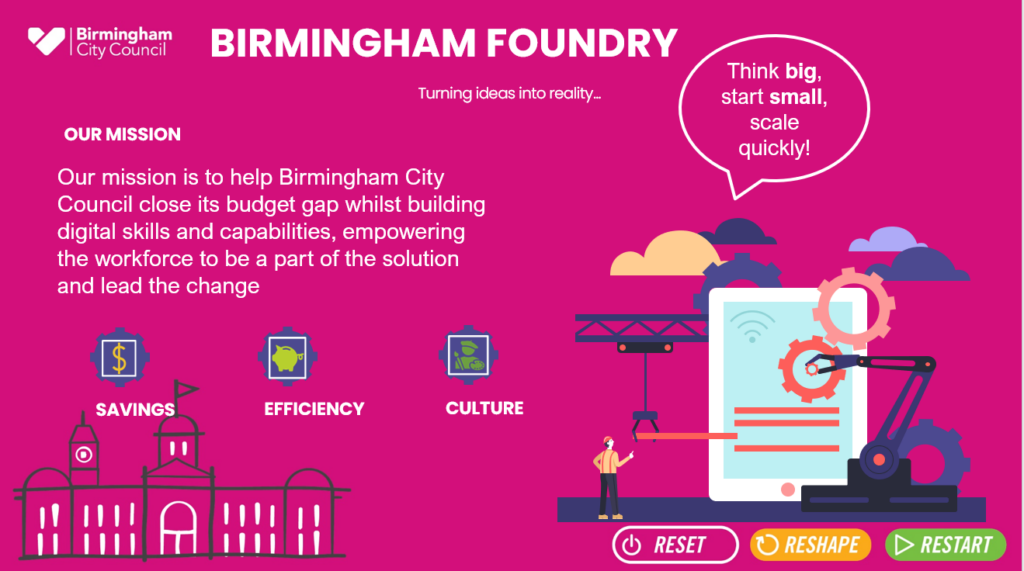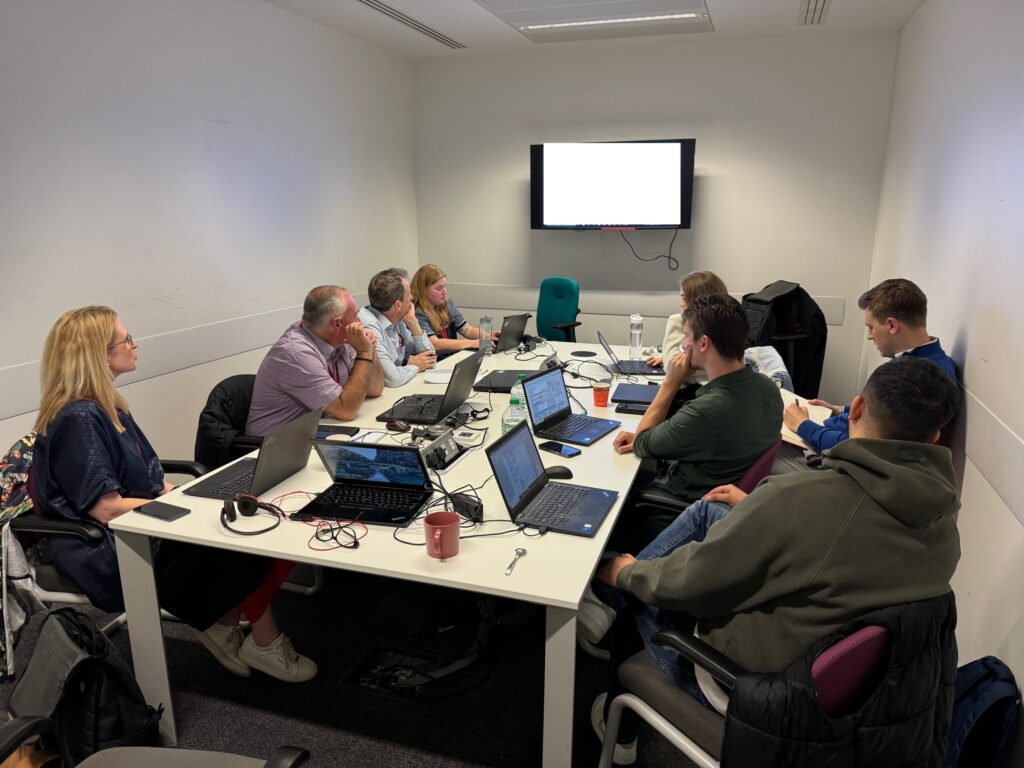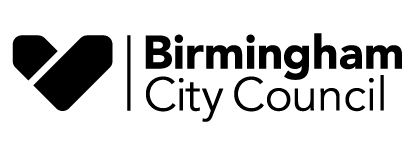Head of Function – Product, Kat Sexton, introduces Birmingham Foundry and explains how it is starting to deliver the benefits of working differently and sustainable change for the council.
Birmingham City Council’s Product function was launched in March 2023. The purpose of it is to work with our council’s services to identify and solve the right problems, aligning strategically with the council’s aims and that we take a user-centric, value driven approach to technology and transformation.
People-powered passion for our city
Birmingham Foundry started as a seed of an idea late last year.
At the time, I was struggling with the challenge of bringing product thinking to life at Birmingham whilst we were being so bogged down in delivery of traditional projects and huge projects and programmes.
The 114 notice also meant that people at Birmingham were starting to think about how we could and should get even more serious about transformative change and realise true savings in efficiency and really challenge the status quo.
My experience of Birmingham up until then had been a lot of working with contractors and some of the ‘big’ consultancies. We started thinking about how we could instead take inspiration from how local government responded to the Covid-19 pandemic and leverage passionate Birmingham staff to help our new emergency. We also wanted to challenge the way work gets done in Birmingham and experiment with a way of working that aligned with our values such as multi-disciplinary working, user centred design, experimentation, and collaboration and make a positive impact on Birmingham’s culture.
After a few weeks of research, (the Defence Digital Foundry and the Gartner fusion teams were inspirational) collaboration, articulation and iteration of ideas, and approvals, and the Birmingham Foundry idea came into existence as a trial in April 2024.
What is Birmingham Foundry?
The Foundry is a movement, mindset, and mechanism to deliver value at pace. Our mantra is to ‘think big, start small and scale quickly.’ Whilst we think and work strategically with services and what outcomes and goals they want to achieve, we are identifying opportunities to improve efficiency. We are breaking big problems down and solving small business problems using mainly tech we already have or have access to, and replacing old ways of working with better, more efficient ways of working.
We have created a framework that is continually evolving as we learn as initiatives flow through it.

Mission: close the budget gap and build digital skills
Our mission is to help Birmingham City Council close its budget gap whilst building digital skills and capabilities, empowering the workforce to be a part of the solution and lead the change.
We are aiming to help create a sustainable council whilst delivering valuable outcomes that make a difference. A council that has learning, iterative improvement, empowerment, and innovative user-centred energy at its heart, with highly skilled, creative staff working for our residents. Contractors and consultants are utilised sparingly, mainly for coaching and building internal skills and capability.
Currently in the Foundry
We are working on at least 8 initiatives at present, examples are as follows:
- digital translations – reducing the amount of time we spend manually translating documents using off-the-shelf Azure cognitive services which will help reduce the cost of translating documents from about £135 per A4 page to 20p.
- redaction of documents – using AI and automation to redact personal information. Our initial use case for this is for the Housing disrepair litigation team. This team receives approximately 250 claims per month and on average, each case can take 90 minutes of officer time to redact documents. With the proposed automation, we are looking to reduce this to approximately 10 minutes per claim.
- housing rota – using Microsoft Shifts app in teams for staff rotas in Housing to save approximately 5 hours of staff effort on this task each week.
- business improvement and support – tracking demand and tasks and moving this to a workflow system rather than relying on emails and spreadsheets to enable better ways of working and create visible and reportable data about workload for this team.

The redaction team in action
Our multi-disciplinary teams build ‘minimal usable solutions’ in collaboration with services and look for opportunities to create reusable capability which can then be used to scale and solve problems elsewhere in the council. There are so many examples of teams using emails, spreadsheets for demand management for example. Not only is this inefficient and error-prone, but there are limited ways of understanding what work the teams are doing and limited reporting opportunities.
Team effort and the power of advocacy
I can’t name everyone involved in Foundry in this post – there are many of us and there will be plenty of opportunities to meet the team in future blog posts!
One person I must mention though at this point is Richard Brooks. Richard is Birmingham’s Director of Strategy, Equality and Partnerships and the Foundry’s board chair. Richard is inspirational and aspirational about the Foundry and is championing it at the very top of the organisation and beyond.
Too early to talk about it?
The idea of Foundry is not new, and you might be working in this way as ‘usual’ in your organisation, which would be awesome. In fact, this concept is simply doing what our new structure is trying to achieve in Digital and Technology Services (DTS), but on a smaller, more deliverable, and experimental level. The theoretical idea is not radical at all, but practically creating the structures, processes, and environment for this way of working to thrive is hard in large, traditional organisations, which we are learning all about every day!
Regardless of whether the Foundry succeeds or not, we are keen to share our story, as we know that what we are doing is already having a positive impact on mindset, culture and ways of working at the council. Services are already starting to come to us to ask us to work with them and solve their problems with them, which is fantastic.
What’s next?
We were given 3 months to prove the value of the Foundry and this will be up at the end of June. So far, we have seen some great success, and we have also been making some mistakes and sharing the learning from those too. We will be summarising everything we have achieved and learned in the next couple of weeks, and hopefully move forwards into the next quarter. To mark and celebrate the end of the trial, we are gearing up for our exciting 2-day hackathon event FoundryLIVE, with Birmingham City University, Microsoft and UiPath on the 25th and 26th June. We will be sharing lots about this after the event next week! We will also go into more detail on how the Foundry works, our new processes, governance and talk a bit more about the value we have been creating in future editions. Thanks for reading!
Do leave a comment below if you have any questions or if you’d like to learn more.
